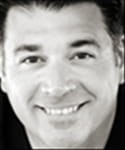A Land of Swedes
- Updated Mar 29, 2009
“Almost all denominations losing ground: Faith is shifting, drifting or vanishing outright”
(USA Today)
“We’re losing our religion” (Associated Press)
“America becoming less Christian” (CNN.com)
“US religion ID inching to ‘none’” (The Seattle Times)
“None of Thee Above” (The Religious News Service)
The headlines flow from the new American Religious Identification Survey (ARIS) released on March 9, 2009. Much in the study was to be expected: mainlines are losing ground; the Bible belt is less Baptist; Catholics have invaded the South; denominationalism is on the wane.
What was most alarming was the increase in “nones” – nearly doubling from 8% to 15%, making those who claim no religion at all the third largest defined constituency in the United States, eclipsed only by Catholics and Baptists. Further, “nones” were the only religious bloc to rise in percentage in every single state, thus constituting the only true national trend.
As the ARIS report concludes, “the challenge to Christianity...does not come from other religions but from a rejection of all forms of organized religion.” Barry Kismin, co-researcher for the survey, warns against blaming secularism for driving up the percentage of Americans who say they have no religion. “These people aren’t secularized. They’re not thinking about religion and rejecting it; they’re not thinking about it at all.”
This raises three critical questions: First, what is happening? Second, what does this mean? And finally, what can be done?
First, what is happening? In what I consider an overlooked book, Without God, Without Creed: The Origins of Unbelief in America, James Turner argues that unbelief is not something that has happened “to” religion. Instead, he argues that religion has caused unbelief. “In trying to adapt their religious beliefs to socioeconomic change, to new moral challenges, to novel problems of knowledge, to the tightening standards of science, the defenders of God slowly strangled Him” (p. xii). Specifically, many who believed decided “to deal with modernity by embracing it – to defuse modern threats to the traditional bases of belief by bringing God into line with modernity” (p. 266). In so doing, they forgot that “God’s purposes were not supposed to be man’s…They forgot, in short, that their God was – as any God had to be to command belief over the long term – radically other than man…unbelief emerged because church leaders too often forgot the transcendence essential to any worthwhile God. They committed religion functionally to making the world better in human terms and intellectually to modes of knowing God fitted only for understanding this world” (p. 267). Mark Silk, director of the Greenberg Center for the Study of Religion in Public Life at Trinity College, seems to be in agreement with Turner’s thesis, noting that there is a “considerable softening of the edges in doctrine, politics and social values” contributing to the rise of the “nones.”
Second, what does this mean? It is not that unbelief is driving out belief, Turner adds, but that unbelief has become more readily available as an answer to the question, “What about God?” (p. 262). Unbelief is becoming mainstreamed, as evidenced by Barack Obama’s recognition of people without faith, the first president to do so, in his inaugural address.
Finally, what can be done? The most direct answer is that we must see America as a mission field. As an Episcopalian priest from South Carolina recently offered, “A couple came in to my office once with a yellow pad of their teenage son’s questions. One of them was: ‘What is that guy doing hanging up there on the plus sign?’”
But American is not just any mission field – as in, “think Sweden.” In his book Society Without God, sociologist Phil Zuckerman chronicles his 14 months investigating Danes and Swedes about religion. His conclusion? Religion “wasn’t really so much a private, personal issue, but rather, a non-issue.” His interviewees just didn’t care about it. As one replied, “I really have never thought about that…It’s been fun to get these kinds of questions that I never, never think about.” Sociologist Peter Berger once quipped “If India is the most religious country on our planet, and Sweden is the least religious, America is a land of Indians ruled by Swedes.”
What we must now realize is that we are increasingly simply a land of Swedes.
James Emery White
Sources
“Almost all denominations losing ground: Faith is shifting, drifting or vanishing outright,” Cathy Lee Grossman, Monday, March 9, 2009, USA Today, p. 1A and 6A.
“Survey: We’re losing our religion,” Rachel Zoll, Associated Press, Monday, March 9, 2009, as printed in the Charlotte Observer, Monday, March 9, 2009. P. 5A.
“America becoming less Christian, survey finds” CNN.com, as posted March 12, 2009. See: http://www.cnn.com/2009/LIVING/wayoflife/03/09/us.religion.less.christian/index.html
“U.S. religion ID inching to ‘none’,” Lance Dickie, The Seattle Times, as printed in the Charlotte Observer, Tuesday, March 24, 2009, p. 11A.
“None of Thee Above,” Adelle M. Banks, Religious News Service, as printed in the Charlotte Observer, p. 1E and 3E, Saturday, March 14, 2009.
James Turner, Without God, Without Creed: The Origins of Unbelief in America (Johns Hopkins Press, 1985).
Phil Zuckerman, Society Without God (New York University Press, 2008). See also “A Land of Nonbelievers, Which Is Not to Say Atheists,” Peter Steinfels, The New York Times, p. A15, Saturday, February 28, 2009.
For a précis on the ARIS study, along with links to the full survey: http://www.americanreligionsurvey-aris.org/



















